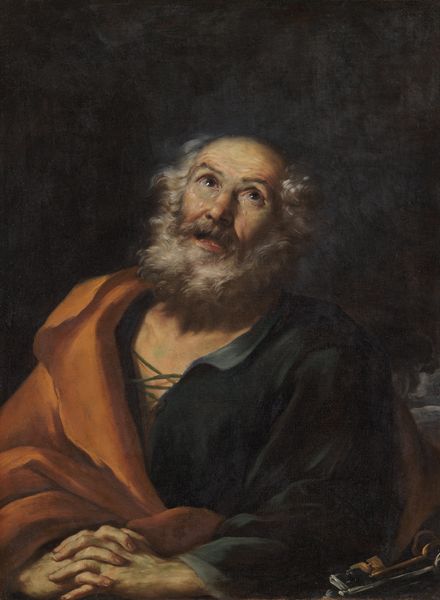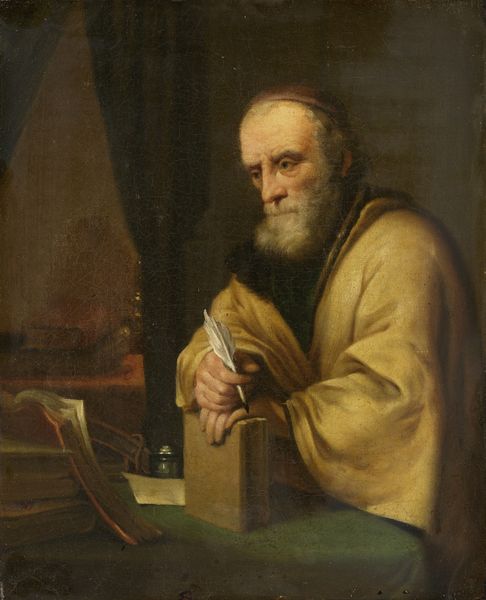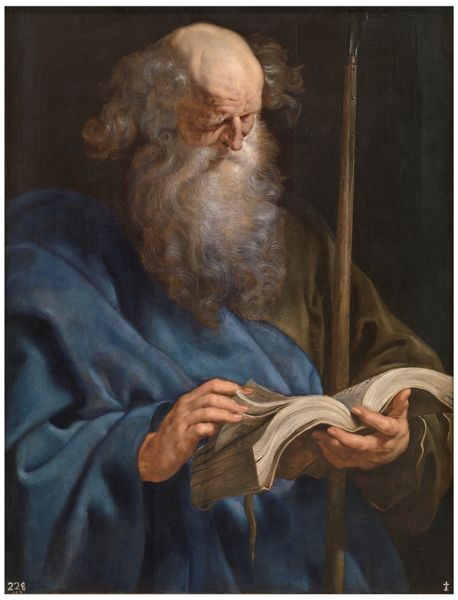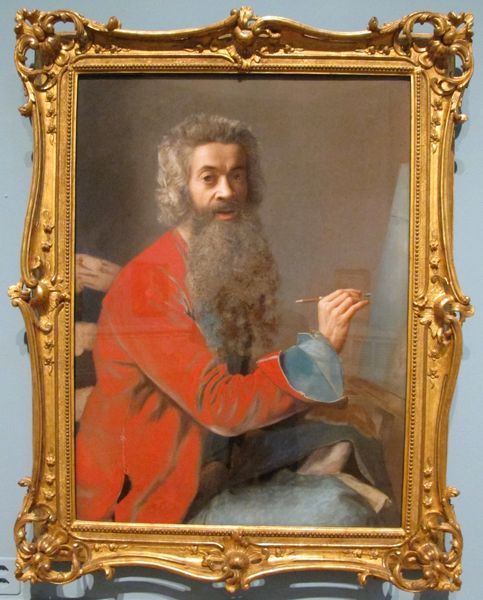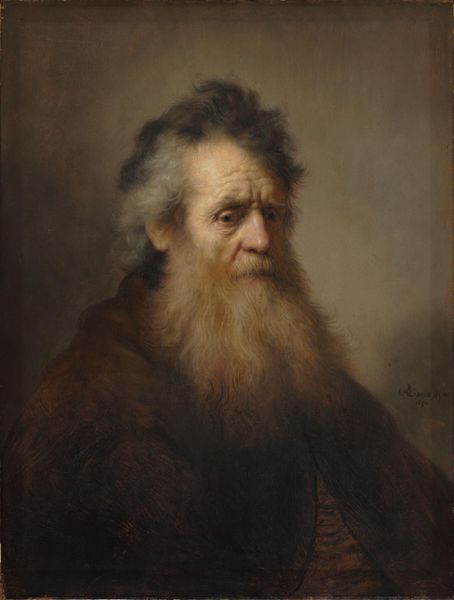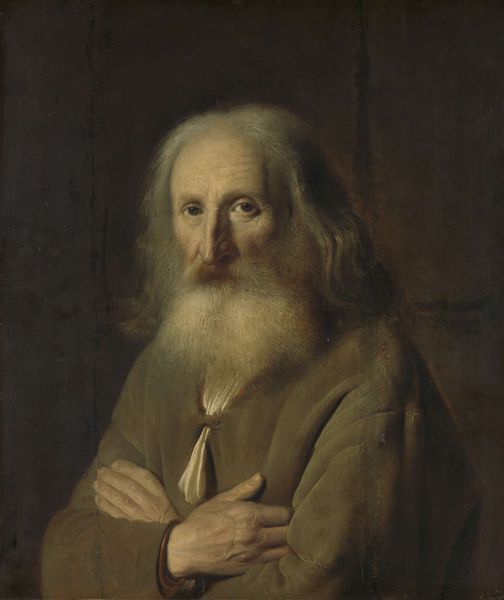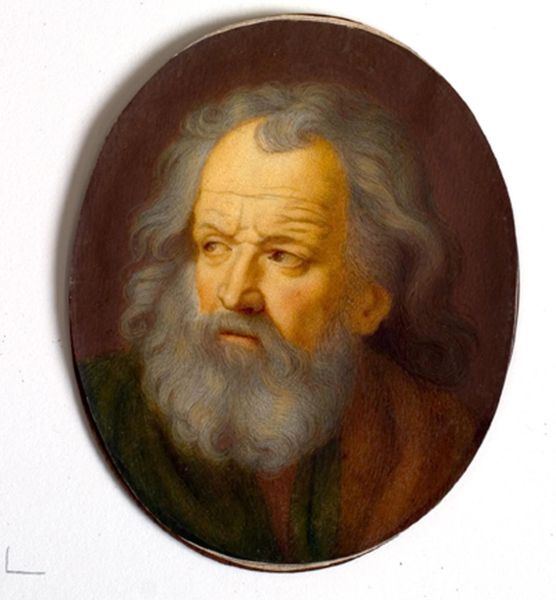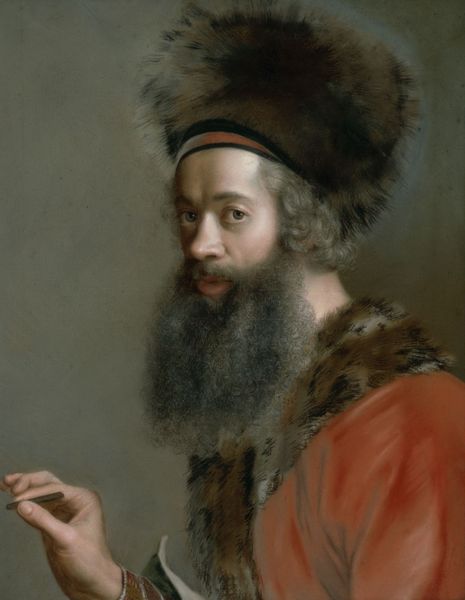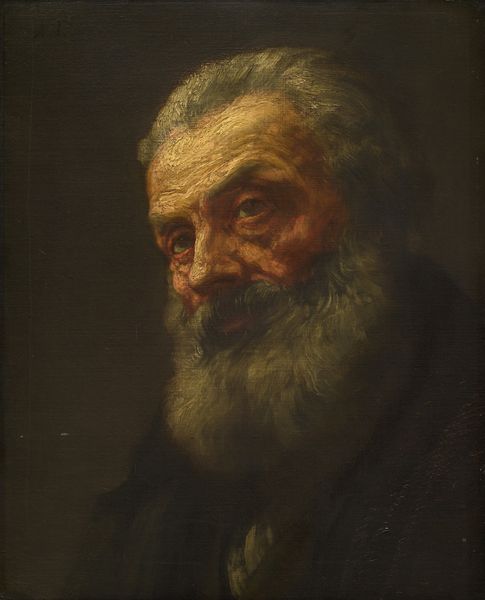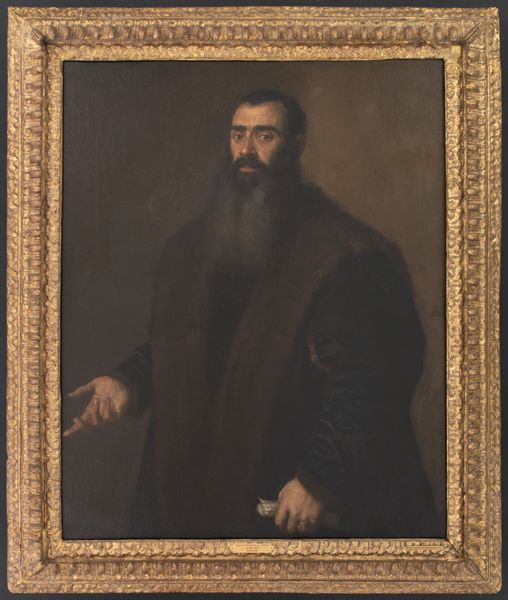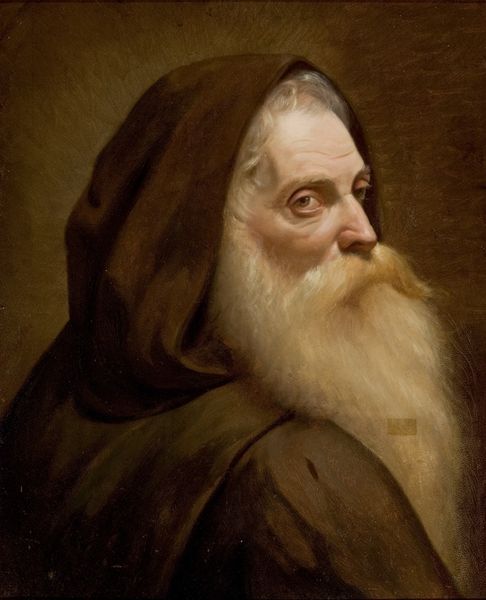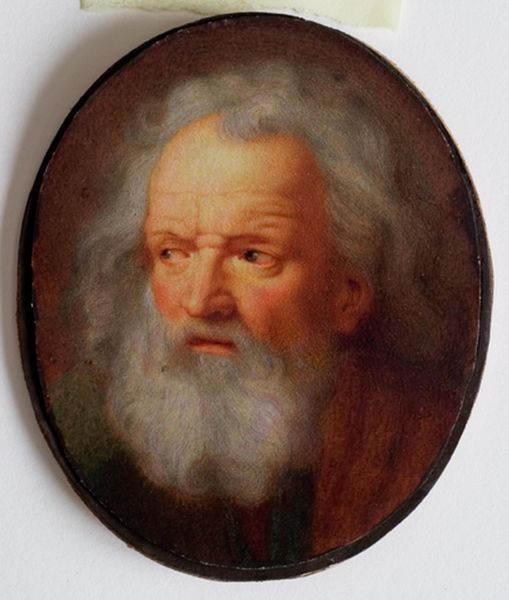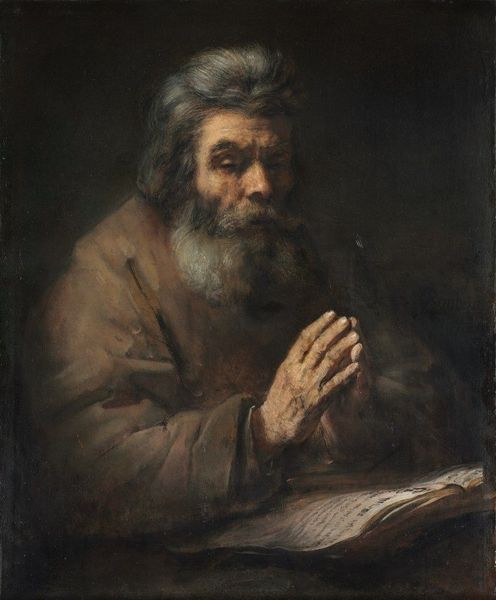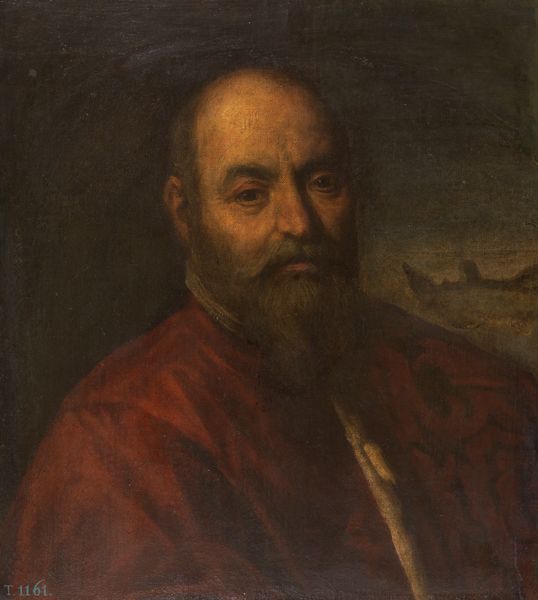
Self-portrait in Turkish Costume 1750
0:00
0:00
jeanetienneliotard
Kunstmuseum Winterthur, Winterthur, Switzerland
painting, oil-paint
#
portrait
#
self-portrait
#
painting
#
oil-paint
#
oil painting
#
rococo
Copyright: Public domain
Jean-Étienne Liotard rendered this self-portrait in pastel, capturing himself in what he called "Turkish costume," a fashionable embrace of the exotic. The beard here is not mere vanity; it's a symbol, echoing those of philosophers and wise men of antiquity, suggesting profound knowledge and perhaps a rejection of contemporary frippery. Consider the recurrence of the beard throughout art history, from depictions of ancient Greek thinkers to Renaissance portrayals of saints and prophets. Each era imbues it with new significance, yet the underlying association with wisdom and authority persists, echoing through time. It's an interesting juxtaposition of East meets West, secular meets religious. The gaze, too, carries weight; Liotard looks out, engaging us directly, as if inviting us into a silent dialogue about identity and representation. This act of looking and being looked at is a potent psychological dance that artists have explored for centuries, engaging viewers on a subconscious level. Note how the composition invites you to look closely at his craft. The Turkish costume and the wise beard: they’re not linear but cyclical, resurfacing in new contexts, each time adding another layer to the ever-evolving narrative of the self.
Comments
No comments
Be the first to comment and join the conversation on the ultimate creative platform.
